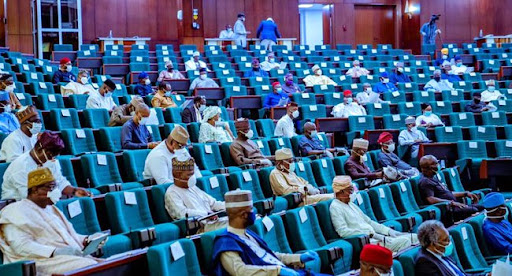The Nigerian House of Representatives on Tuesday passed a 2022 budget of ₦17.126 trillion into law against the ₦16.391 trillion sum presented to the house by the President.
Africa Today News, New York also gathered that the Senate as expected also passed the appropriation bill on Tuesday.
While the major capital, recurrent, debt service, statutory transfers were left the way they are, the House made provision for an increase by ₦400 billion for agencies that came forward with financial reports which were not captured in the proposed budget, such as INEC, Ministries of Humanitarian Affairs, the National Assembly, and more.
In passing the bill, the House increased the benchmark price for crude from $57 to $62 per barrel, from which a proposed increase in revenue is expected.
The lawmakers also made provision for 10 percent of monies recovered by EFCC and the National Financial Intelligence Unit to be utilised by the agencies for their operations, to strengthen their fight against corruption.
Read Also: Incessant Borrowing To Fund 2022 Budget Worrisome – Ndume
The budget deficit was increased by ₦98 billion to accommodate some other requests of national importance which have not been captured in the budget estimates and which could not be covered by the revenue increase.
Meanwhile, President Muhammadu has declined assent to the Electoral Act Amendment Bill over the direct primaries clause.
In a letter sent to the National Assembly, President Buhari cited several issues with the clause.
During plenary session on Tuesday, the upper and lower chambers read the content of the President’s letter.
Senate President Ahmad Lawan, who read out the content of the document to the lawmakers at the Senate, gave reasons for Buhari’s move.
The President, according to the letter, explained that direct primaries are expensive. This, he said, will put a financial burden on the country’s resources.
He further noted that conducting direct primary elections will be tasking, explaining that since such mode of election means a large turnout of voters, the move would stretch the security agencies.
AFRICA TODAY NEWS, NEW YORK

